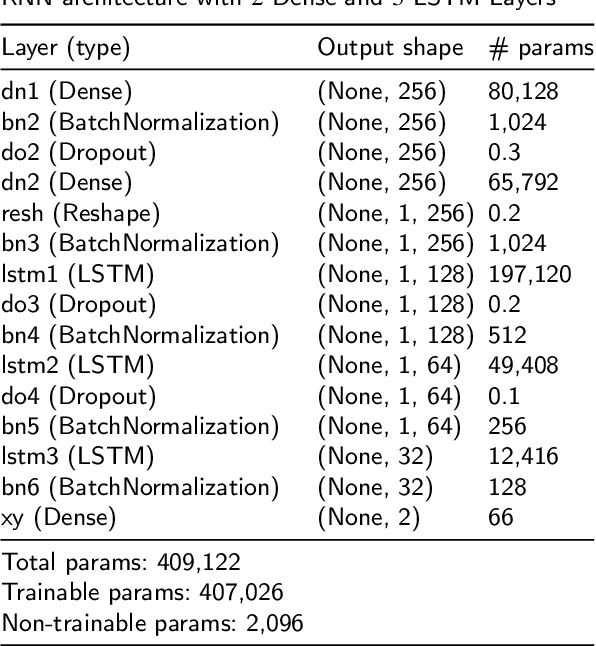Konstantinos Vogklis
Citizen participation: crowd-sensed sustainable indoor location services
Oct 25, 2023



Abstract:In the present era of sustainable innovation, the circular economy paradigm dictates the optimal use and exploitation of existing finite resources. At the same time, the transition to smart infrastructures requires considerable investment in capital, resources and people. In this work, we present a general machine learning approach for offering indoor location awareness without the need to invest in additional and specialised hardware. We explore use cases where visitors equipped with their smart phone would interact with the available WiFi infrastructure to estimate their location, since the indoor requirement poses a limitation to standard GPS solutions. Results have shown that the proposed approach achieves a less than 2m accuracy and the model is resilient even in the case where a substantial number of BSSIDs are dropped.
Blending gradient boosted trees and neural networks for point and probabilistic forecasting of hierarchical time series
Oct 19, 2023Abstract:In this paper we tackle the problem of point and probabilistic forecasting by describing a blending methodology of machine learning models that belong to gradient boosted trees and neural networks families. These principles were successfully applied in the recent M5 Competition on both Accuracy and Uncertainty tracks. The keypoints of our methodology are: a) transform the task to regression on sales for a single day b) information rich feature engineering c) create a diverse set of state-of-the-art machine learning models and d) carefully construct validation sets for model tuning. We argue that the diversity of the machine learning models along with the careful selection of validation examples, where the most important ingredients for the effectiveness of our approach. Although forecasting data had an inherent hierarchy structure (12 levels), none of our proposed solutions exploited that hierarchical scheme. Using the proposed methodology, our team was ranked within the gold medal range in both Accuracy and the Uncertainty track. Inference code along with already trained models are available at https://github.com/IoannisNasios/M5_Uncertainty_3rd_place
 Add to Chrome
Add to Chrome Add to Firefox
Add to Firefox Add to Edge
Add to Edge